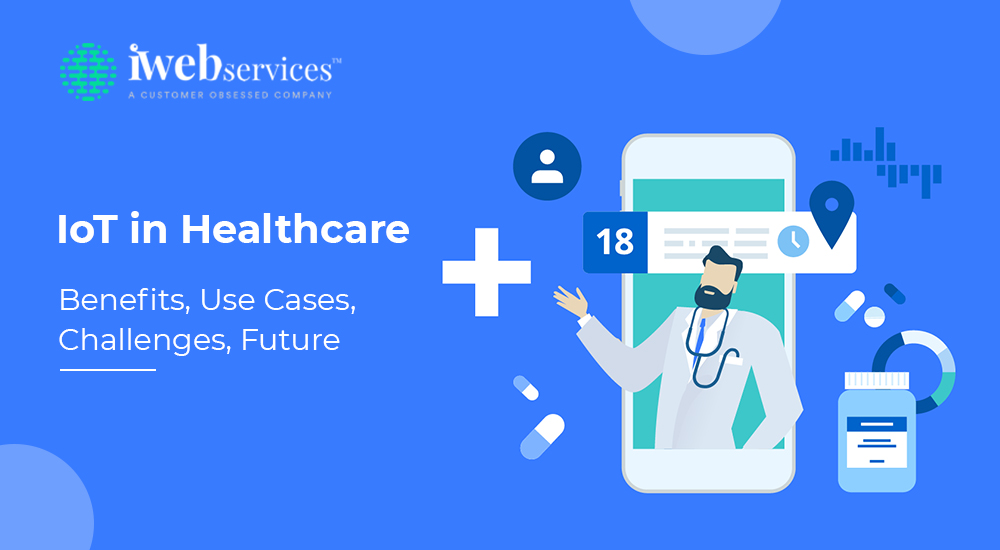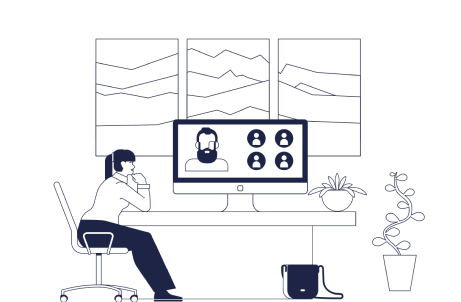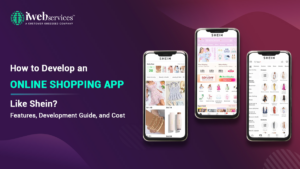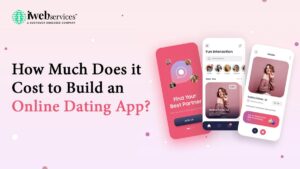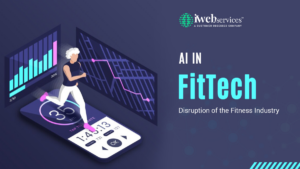Before the introduction of IoT in the healthcare industry, patient care consisted mostly of hospital visits and, to a lesser extent, phone calls and text messages. Doctors were unable to continuously check the health of their patients and assist them as needed in this manner. With the IoT app development, things changed, allowing for effective remote patient care.
Internet of Things for Doctors
Physicians may now easily maintain track of their patient’s health by using IoT-connected wearables and equipment. This will allow them to determine whether they should provide emergency medical assistance or make any changes to the current treatment plan.
Through IoT-enabled gadgets, healthcare providers will be able to communicate with patients in a proactive manner. Doctors would be able to plan out a better treatment and hence get better results by learning from the collected data from such connected IoT devices.
Internet of Things for Patients
It is now possible to devote greater attention to patients by using wearable technologies. Examples are fitness bands or gadgets connected wirelessly to monitor heart rate and blood pressure, glucometers, and other wearables. These gadgets can be used to monitor blood pressure, schedule appointments, and keep track of calorie intake, among other things.
IoT app development services can be used to continuously monitor a variety of health issues, which has improved the care of the elderly. People who live alone or are separated from their relatives have benefited enormously from this technology. An alert is issued to the concerned health provider or family member if any alterations in the routine are observed.
Internet of Things (IoT) for Health Insurance Companies
For health insurers, IoT-enabled gadgets open up a world of possibilities. For claim procedures and underwriting, insurance companies can make use of vast amounts of data acquired by a variety of health monitoring devices. This will assist them in locating underwriting prospects and avoiding any fraudulent claims. In terms of risk assessment processes, pricing, underwriting, and claims management, the adoption of IoT devices in this industry will promote transparency between clients and insurers.
Customers will clearly understand every decision made and its outcome because operating processes will be determined based on data acquired from IoT devices.
Internet of Things in Hospitals
Aside from monitoring patient health, IoT devices assist hospitals with a variety of tasks. Hospitals can utilize IoT-enabled sensors to track down medical equipment such as defibrillators, oxygen pumps, wheelchairs, and nebulizers, among other things. It’s also possible to track the medical staff’s location in real-time.
Hospitals can also utilize IoT devices to manage medication inventory and monitor the environment (humidity and temperature in the refrigerator). IoT devices can be used to employ devices to monitor hygiene conditions and thereby protect patients from infection.
The advantages of implementing IoT in the healthcare industry
In terms of accessibility and affordability
IoT can easily automate inpatient care workflows by utilizing healthcare mobility solutions and other relevant technologies and facilities. Incorporating IoT into healthcare facilitates information interchange, interoperability, data transfer, and machine-to-machine connectivity, all of which aid in the efficient delivery of healthcare services.
This setup aids medical staff in accurately diagnosing the condition and devising novel treatment options. This type of setup lowers costs by lowering the number of unnecessary hospital visits, enhancing planning and allocation, and better-utilizing resources.
Simultaneous reporting and monitoring
Using linked devices for real-time monitoring in the event of a medical emergency such as an asthma attack, heart failure, or diabetes can save lives.
IoT-enabled smart gadgets will be connected to a smartphone app for real-time monitoring. As a result, various connected gadgets will now collect the patient’s health-related data and send it to the physician. The patient’s re-admission to the hospital will be reduced as a result of such remote monitoring inside the month.
The cloud can be used to store various health-related data collected from patients. Only an authorized professional has to access to this information. This professional could be a doctor, a health firm, or the patient’s insurance company. They can easily access the data at any time and from any location.
Tracking and alerts
On-time alerts become critical when the situation is life-threatening. IoT devices in healthcare acquire critical medical data, which is then communicated to clinicians for real-time tracking. Simultaneously, the majority of information is sent to consumers via connected gadgets and mobile apps.
So, regardless of where the patient is, alerts and reports can provide a better picture of his or her health. This allows patients to receive treatment on time and make the best decisions possible during the process.
In a nutshell, the Internet of Things (IoT) aids the healthcare business by allowing for real-time tracking, monitoring, and alerting. This allows them to acquire a more accurate picture of the patient’s health, provide hands-on treatment, improve patient care, and promptly bring in the right doctors.
Data collection and analysis
IoT devices work in real-time, and healthcare devices send significant amounts of data in a short amount of time. So, if connectivity to the cloud is not available, storing and managing massive volumes of data will be difficult. Again, even healthcare providers, when looking at things from their perspective, cannot manually interpret such enormous volumes of data collected from various sources and devices.
Things are different now, thanks to IoT gadgets! They can simply collect, evaluate, and get insights from data in real-time without having to save it in the raw format first. All of these tasks are now completed in the cloud, with the users receiving only the reports and graphs.
Furthermore, because they have quick access to critical data-driven insights and analytics from various healthcare operations, healthcare professionals may speed up their decision-making process and reduce the number of errors.
Research
IoT in healthcare can be used for research as well as addressing patients with appropriate medicinal treatments. The use of IoT in the healthcare sector allows for the collection of vast amounts of detailed data about patient health and treatment that would otherwise take many years to acquire.
In brief, the information gathered in this way can help in medical research by contributing to a statistical study. As a result, the amount of time and money you need to spend on research is substantially decreased thanks to the Internet of Things.
Today, IoT is employed in a variety of patient-facing devices, which has contributed to improving the quality of healthcare services. Furthermore, the Internet of Things (IoT) has the potential to improve healthcare facilities and medical treatments.
Remote medical assistance
Emergencies appear out of nowhere; they don’t knock! Patients can now easily contact their doctor who is located several miles away using a smartphone app in such scenarios. In this field, the usage of mobile apps can assist doctors in obtaining real-time information about their patients’ health and promptly diagnosing problems.
Again, some pharmaceutical delivery companies seek to develop IoT-driven machines that can learn from a patient’s prescription and analyze their medical data using connected devices to instantaneously deliver medicines.
IoT is capable of assisting hospitals in providing improved patient care. People will spend less time and money in hospitals as a result of this.
Final Thoughts
The use of IoT in healthcare has the potential to be a game-changer. It is thought to play a critical role in improving healthcare all around the world. The Internet of Things in healthcare is still in its infancy, and there are numerous difficulties and roadblocks to overcome. It will improve and become more suitable for people in the future years. It’s the right time to invest in your healthcare project by hiring an IoT app development company.
Contact iWebServices, if you have any questions about IoT for Healthcare. Our programmers have extensive experience designing IoT-based software and are always willing to assist.
 August 13, 2021
August 13, 2021
